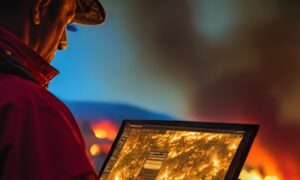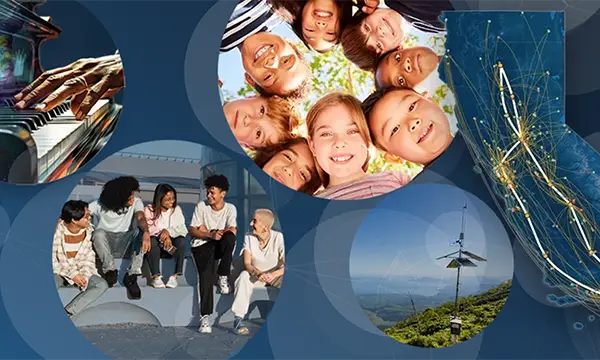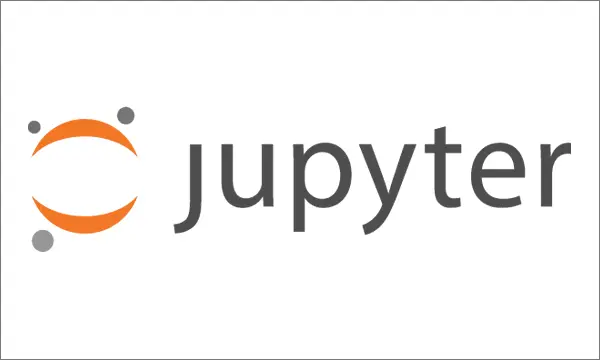- About
- Network
- Community
- Initiatives
- News
- Events
- Blog
- Publications

CENIC and its Members Help Prepare for, Recover from, and Respond to Disasters
Categories The CENIC Community

In just five years, Californians have lived through devastating fires, a global pandemic, destructive winter storms, and unprecedented heat waves. Predicting, responding to, and recovering from emergencies like these means supporting those affected, training those who respond, and understanding the emergencies themselves.
CENIC member institutions like libraries and school districts have served as the unsung heroes of these events, offering patrons shelter, access to desperately needed services and resources, and a sense of normalcy amid chaos. Scientists and researchers at our member institutions help the state prepare for disasters, and seven out of ten nurses and eight out of ten firefighters, police officers, and EMTs in California receive training at one of California’s community colleges.
All of these services are made possible by the high-bandwidth connectivity to colleagues in the research and education community and beyond (and responsive, world-class 24/7/365 network services and support) that these institutions obtain through CENIC’s California Research and Education Network (CalREN). This enables them to help Californians prepare for, respond to, and recover from natural disasters.
Libraries, in particular, offer vital support during emergencies, which has made them de facto second responders who play a role in both response and recovery when the need arises.

Connectivity Restored Quickly at Altadena Following LA Fires
The Altadena Library relied on a lit circuit for its primary Internet connectivity to CalREN. When the Los Angeles fires caused the library's lit service to go out of service indefinitely, the library was left without reliable Internet access, impacting its ability to serve patrons during the emergency when its services were most urgently needed.
CENIC and the Altadena Library partnered with Mobile Beacon, a nonprofit broadband provider serving schools, libraries, nonprofits, and healthcare organizations, to create and implement a reliable backup solution and restore connectivity in less than half the estimated time to service restoration for the original lit circuit. As a temporary solution, Mobile Beacon provided LTE-enabled SIM cards to use with CENIC's DR POC, which integrate with CENIC’s existing customer premises equipment, successfully restoring Internet access for library users and ensuring uninterrupted service.
CENIC is now actively testing Mobile Beacon lines for Dynamic Multipoint VPN (DMVPN) Out-of-Band (OOB) connectivity solutions and evaluating 5G routers to enhance our emergency response capabilities.
Libraries Functioning as Emergency Hubs
Mere days after a powerful 2024 winter storm began dropping inches of rain on San Diego, leading to flooding that displaced some residents, the San Diego County Library (SDCL) stepped into action.
SDCL transformed its Spring Valley Library branch into a local assistance center and a disaster recovery center. The local assistance center helped patrons with immediate needs, such as securing food vouchers and essential documents, while the disaster recovery center supported longer-term needs, such as obtaining FEMA funding.
“If we didn’t have connectivity [provided by CENIC], it would have slowed things down, and folks really couldn’t afford that at that moment,” said Dominique Freeman, SDCL’s facilities services manager. “In any emergency, connectivity is really important and plays a vital role. When you lose connectivity, you’re adding to fear and disconnection.”

CalREN Enables Cultural Institutions to Maintain Expanded Horizons after Pandemic
Cultural institutions are also crucial in helping communities maintain a sense of continuity and cohesion during times of uncertainty and fear, as well as process their experiences.
Thanks to the high-speed connectivity they enjoy from their CENIC membership, such member institutions were able to launch innovative digital initiatives to reach people at home during the pandemic, providing valuable resources for the research and education community and beyond. The Exploratorium, SFJAZZ, and the Getty kept their communities engaged with online offerings, including hands-on science, art, and music projects that support the latest curriculum standards, COVID-related educational materials, teacher workshops, virtual museum tours and concerts, gaming activities, and more.
And of course, the lessons learned in providing rich, network-enabled, collaborative experiences to people remotely during the pandemic continue to be applied even today, enabling CENIC’s cultural member institutions to expand their horizons permanently.
To learn more about the CENIC community and the impacts that CENIC members are having on communities, please visit the Community section of our website or read more about how CalREN facilitates the human network on the CENIC Blog.
Related blog posts
Community Connections: The Network, Services, and Collaborative Opportunities Made Possible by CENIC
Learn how the CalREN backbone extends to every part of California, visit our new Community Portals for quicklinks to CENIC resources, and discover the CENIC initiatives that enable collaboration among our members and others nation- and worldwide.
Explore the Future with Jupyter Notebooks and CENIC AIR
Jupyter notebooks are key tools for various research and data science tasks, such as exploratory data analysis (EDA) and scientific analysis, and educational uses. CENIC members are in an ideal position to use Jupyter Notebooks with the CENIC AI Resource (CENIC AIR).


